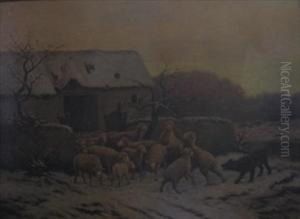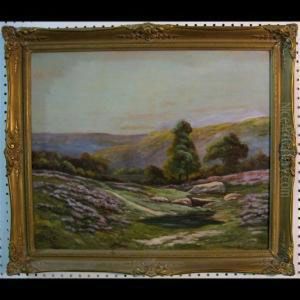V. Vezien Paintings
Victor Vezien, often known simply as V. Vezien, was a French sculptor born on October 18, 1888, in Marseille, France. His work is less well-known in the mainstream art history canon, but he made significant contributions to the sculptural art of his time. Vezien's early life and training are not widely documented, but it is known that he was active during the early 20th century, a period that was rich with artistic innovation and the development of new art movements.
Vezien's artistic career was notably marked by his participation in various exhibitions, including the Salon des Artistes Français, where he received an honorable mention in 1921 and a silver medal in 1926 for his works. His sculptures often depicted figures, animals, and allegorical subjects, crafted with a sense of realism that was typical of the period.
During his lifetime, Vezien would have experienced the tumultuous events of the early 20th century, including World War I and World War II, which influenced the art world in various ways. However, there is little specific information about how these historical events directly impacted Vezien's work.
Victor Vezien passed away on November 2, 1953, in Paris. Although his name may not be as widely recognized as some of his contemporaries, his sculptures remain a testament to his skill and the artistic legacy of his era. His works can be seen as a reflection of the traditional sculptural techniques of the time, and they provide insight into the artistic movements that were occurring in France and across Europe.


